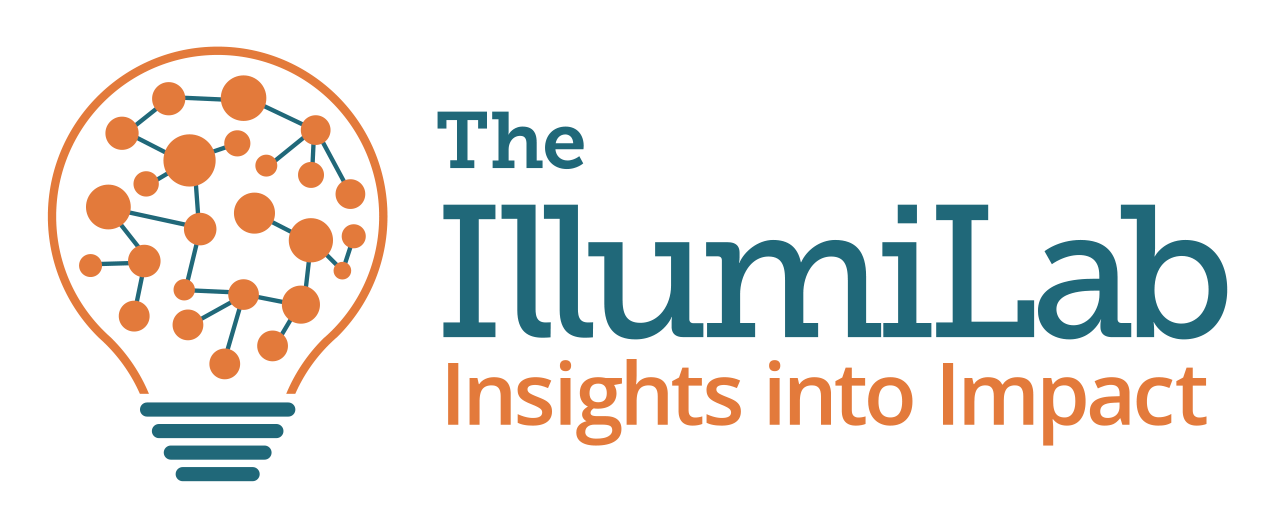This is our third and final post in a series sharing tips from The IllumiLab team and members of our community of practice for nonprofits that are preparing to hire their first internal evaluator. In our last post, we shared some tips and questions to consider as you decide what type of support your evaluator needs and how to structure the position. In this post, we’ll share some tips on how to find the right candidate.
Who Should You Hire?
Internal vs. External Candidates
The first question you might be considering is whether to hire an internal or external candidate. Like anything, there are pros and cons. Internal candidates might have deep knowledge of operations, programs, and organizational culture. You could also benefit from hiring an internal candidate who has earned valuable social capital and trust within the organization, which can make the work of evaluation less anxiety-producing and less threatening. For these reasons, an internal candidate may be a more effective champion of change and improvement. But an internal candidate is likely to be less objective and lack the fresh perspective an external candidate can bring. Hiring an external candidate can also signal to your organization and team that your evaluative work is a new and significant investment.
 What kind of person should you hire?
What kind of person should you hire?
We agree with The Bridgespan Group in their report Building Capacity to Measure and Manage Performance, “Your first [internal evaluator] needs more than just data skills.”
Organizations often overlook the “soft” skills necessary for an internal evaluator to succeed. As we mentioned in our last post, the people in these positions often have lots of responsibility but little authority, so they have to rely on “soft skills” to lead and influence the behavior of their colleagues. They need to be able to get staff to collect and use data, to ensure correct and regular use of databases, to secure buy-in from staff and leaders for evaluation activities, etc. They need to be cheerleaders, salespeople, and influencers, especially if evaluation is new to your organization. (This is where the social capital and trust of an internal candidate can be especially valuable.)
Because internal evaluators often sit at the intersection of many teams and departments, they often need to be skilled translators between IT and program staff, between program staff and grant-writers, etc. They need to help software vendors understand service delivery models, and they need to help service providers understand how databases work. They need to help grant-writers make compelling but manageable promises and represent results accurately.
If evaluation work in your organization is new and/or if this position is new, you’ll also want to hire someone who is comfortable living in transition, ambiguity, and uncertainty. They will be charting their own path, creating new processes, and disrupting relationships and patterns just because they and their work are new. Being a good designer can help in this regard. That is, you’ll want to hire someone who has the ability to envision new processes and new ways of working and then translate that vision into intentionally designed job descriptions, workflows, policies and procedures.
Having “front line” experience can often help, too. When your evaluator is tasked with encouraging and supporting staff in data collection, entry, and management, their guidance and requests will likely be well-received if staff know that the evaluator has walked in their shoes and understands the realities of service delivery.
The Bottom Line
When crafting these positions and identifying necessary skills, don’t just focus on what it takes to do evaluation, but also consider what it takes to build and sustain the evaluative culture and systems that will help your organization succeed long-term.
